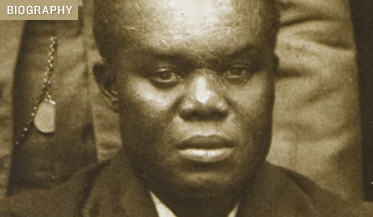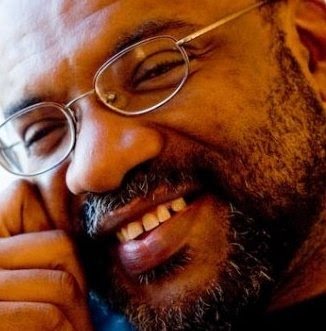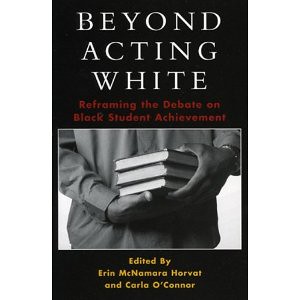Story by Dahr Jamail
Photography by Erika Blumenfeld

Photo by Erika Blumenfeld © 2010
Clint Guidry is a shrimper from Lafitte, Louisiana. As we sit together, he shows me a picture of his house with 18 inches of water in it as a result of Hurricane Ike in 2008.
In his deep voice, he looks me in the eye and says, “My fear is repeating this situation, but with this water with oil on top of it.”
Guidry represents all the shrimpers in Louisiana, given that he is the Shrimp Harvester Representative on the Louisiana Shrimp Task Force that was created by the state’s governor.
Prior to this fishing season, he, like the rest of Louisiana’s fishermen, was excited for good season, with the price of shrimp per pound finally weighing more in their favor.
“We were primed for a great season,” Guidry says, “And it all got taken away.”
Unlike most fishermen who’ve had their livelihoods decimated by BP’s oil disaster, Guidry has chosen not to work for BP doing skimming and booming operations with his boat.
“I worked for Brown and Root in the oil industry,” Guidry informs, “I know the dangers of oil and chemicals, so there’s no way I’m going to go work out in this stuff. Instead, I’m trying to help make sure BP is paying people, and being safe. But I’m not accomplishing either one yet.”
Guidry is incensed at what he is seeing.
“There has been a BP cover-up from day one,” he says, as I write furiously in my notepad, trying to keep up, “The US Government, OSHA [Occupational Safety and Health Administration], the Coast Guard, NIOSH [National Institute for Occupational Safety and Health], all of them are in on it.”
On May 24th, in Galliano, Louisiana, Guidry testified to a delegation of US Senators, Congressmen, and Agencies and departments under Obama’s administration. He sent the testimony to the president as well, urgently requesting help.
Here is his testimony, verbatim:
–
My name is Clint Guidry. I am a third generation Louisiana Commercial Shrimp Fisherman. I am sixty-two years old and a lifelong resident of Lafitte, LA. I am a Vietnam Veteran and the son of a WWII Veteran.
I am on the Board of Directors of the Louisiana Shrimp Association and the Shrimp Harvester Representative on the LA Shrimp Task Force created by Executive Order of Gov. Bobby Jindal.
I have been invited here today to testify about the current disaster that is occurring concerning the blowout and oil spill from the British Petroleum (BP) DeepWater Horizon Catastrophe and what effects it is having on the fishermen and the families I represent.
Ladies and gentlemen, HELL has come to South Louisiana. A HELL created by British Petroleum (BP) and a failed U.S. Government response to the disaster.
First of all I would like to put into perspective BP’s role in this disaster and show them for what they are.
BP committed fraud in furnishing oil spill response data required to obtain a permit to enable them to drill the MC 252 location. The reality is they were not prepared to handle or control a blowout and resulting oil spill of this magnitude. Simply put, they LIED.
BP, in their haste to cut corners and save money in the completion process on the well location at MC 252, exhibited willful neglect in their duties to complete the well safely which led to the blowout and explosion that killed eleven people. Eleven souls that will never come back. Eleven families with mothers and fathers and wives and children. Children who will never see their fathers again.
This neglect and loss of life constitutes negligent homicide and all involved should be arrested and charged as such.
So now I have established what kind of people we are dealing with, LIARS and KILLERS. It appalls me that they are still in total control of this disaster after almost a month has passed.
Now I would like to speak about our Federal Response to the disaster.
The first response to the disaster was the U.S. Coast Guard, who has assumed duties of protecting BP and aiding them in downplaying the spill, providing BP representatives with armed guards to keep away the press and TV camera crews and sending representatives to local communities to provide false information on safety and health dangers related to the oil spill and the chemical dispersants used.
The second response came from the Environmental Protection Agency (EPA), who in an effort to minimize the spill and save BP face, unleashed two dangerous chemical dispersants which were injected into the water column at the sea floor and sprayed on the surface over the oil and workers in the areas of the spill and along the coast close to coastal fishing communities. These chemical dispersants contain solvents that are dangerous to marine populations in the Gulf and coastal estuaries and were never fully tested for dangers to humans. In the product sheets for these chemical dispersants, there is always a disclaimer: “This listing does not mean that EPA approves, recommends, licenses, certifies or authorizes the use of this product on an oil discharge.”
And that IS exactly what EPA did and is still doing with total disregard to marine populations that will collapse because of it and human populations that will get sick and may die because of this decision.
“Kill the Ocean, Save the Beaches,” a “Trade-Off” decision. Under what logic does this work? The Gulf is the Mother and the Estuaries are the nurseries. If the Mother dies, there will be no children to incubate.
The reality is the oil and chemical dispersants are entering our estuaries as we speak. The “Trade-Off” logic FAILED.
As I stated, I represent commercial shrimp fishermen. I have members, friends and family presently working to contain and clean-up the spill. They are relating to me BP’s total disregard for providing workers with proper Personal Protective Equipment (PPE).
I have extensive experience working with hazardous chemicals associated with petroleum. In the 80’s and 90’s I worked with Brown and Root Industrial Services as a supervisor, General Superintendant and Area Superintendant. I supervised maintenance work in oil refineries and was responsible for worker safety and getting the work done on time. Safety and health of my workers ALWAYS came first with me.
I am being told by workers and family members that proper respiratory protection is NOT being provided to the fishermen workers.
Petroleum, as it surfaces and spreads over the water and heats, releases dangerous carcinogens and these carcinogens are most concentrated directly over the leaking well and surrounding area where my fishermen are working. There has been NO respiratory protective PPE issued to workers working directly over this most dangerous area, even as a precaution to have available given they are working 60 miles offshore. In fact, when some individuals brought their own respirators, they were told by BP representatives on site that if they wore the respirators they would be released from the job. That disturbs me greatly.
My fishermen are more concerned with losing their jobs and the income they desperately need to pay bills and feed their families than their health. From years of experience I know that, when protected, work in very hazardous environments can be completed safely using the proper PPE.
Is BP sacrificing my fishermen’s health and lives to protect themselves from liability issues at a later date?
How can we believe liars and killers when they say the worksite is safe?
This is the same game plan Exxon used in Alaska 20 years ago and Alaska fishermen ¬never collected a penny in settlements from Exxon for sickness and deaths related to working clean-up after the Valdez spill. Exxon never issued respiratory protection to fishermen in the Valdez spill.
These workers safety issues are my top PRIORITY and need to be addressed IMMEDIATELY.
If we are going to allow BP “We the people” 5th Amendment rights in court and use “Taking of Future Profits” to let them off the hook for full responsibility of this disaster, we will be playing the same part as the Alaskans did in the Exxon Valdez Playbook that BP is using on us.
It is past time for our elected officials, Departments and Agencies to abandon the influence of “Big Oil’s” “Big Money” and do what they were elected and appointed to do, represent and protect “We the People” who voted them in office.
This Administration needs to treat BP like what they really are, LIARS and KILLERS and take control of this monumental disaster.
This administration was elected to office on a platform of “CHANGE.” So far, as it applies to “Big Oil” it is business as usual. The only change we are experiencing in dealing with “Big Oil” is being “Short-Changed.”
On behalf of the Commercial Shrimpers I represent and the coastal communities who are losing their way of life, I ask that you take control of this out of control situation.
Clint Guidry
Louisiana Shrimp Association
–
Like so many others in Louisiana who have any affiliation with the response effort to the oil disaster (which is basically everyone), as his statement indicates, Guidry is appalled at the seeming lack of concern about the heath effects of the dispersants on response workers.
“There are incidents the Coast Guard itself has recorded and documented of planes spraying Coast Guard boats, platforms, and fishermen with dispersant,” he tells me, “Our biggest battle now is trying to get people protected, and it’s pissing me off.”
Guidry is hearing directly from fishermen he knows participating in the response effort, and they are telling him they are being sprayed.
To make matters worse, despite BP being directed by the so-called EPA and Coast Guard on May 26 to dramatically decrease their use of dispersant in the Gulf, recently released Coast Guard records show that BP has exceeded dispersant limits on a near daily basis since that order.
Guidry, like everyone I’ve met thus far in Southeastern Louisiana, is all too aware of the fact that, as he succinctly stated in his testimony, “Hell has come to South Louisiana.”
Yet he knows the future could bring even worse. “If we have another bout of storms during August, September, and October, which is our severe storm time, that brings one Category 3 hurricane, we’ll have oil and dispersant everywhere. Every area of Southern Louisiana beyond hurricane protection will lose their homes, their living, and their heritage.”
Guidry speaks fondly of how he used to fish for Tuna out in the area where the well is gushing oil into the Gulf.
“Blue, White, Brown Tuna, Marlin, Sailfish, it is all out there,” Guidry says urgently, “This disaster has punched holes in our marine eco-system that we won’t know about for a long time. We don’t know what we’ve done.”
A short while later Guidry invites us, along with several other friends, on a short boat ride up the Bayou. He expertly guides his boat across the water while pointing out dormant remains of the local commercial shrimping industry.

Photo by Erika Blumenfeld © 2010
“Nunez Seafood is the only processing plant we have in Lafitte,” Guidry explains, “That’s where we used to box and freeze our shrimp before it would be sent out across the country. Right now, that freezer space should be completely full of shrimp.”
Tracy Kuhns, the executive director of Louisiana Bayoukeeper, is riding with us, and watches me staring at the empty facility, that is also surrounded by many empty shrimping boats.

Photo by Erika Blumenfeld © 2010
“We went from a fishing village, to an oil town,” Tracy adds as we pull away from the emptiness that used to be Nunez Seafood.
posted by Dahr Jamail | July 11th, 2010













![0 [] 0 []](http://www.shadowandact.com/wp-content/uploads/2010/07/0-.jpg) Tambay’s recent post of a clip from the
Tambay’s recent post of a clip from the 

 Over at Slate, Richard Thompson Ford promises to teach the readership “
Over at Slate, Richard Thompson Ford promises to teach the readership “



The Farrakhan booking wasn’t an attempt to boost ratings. It was him booking who he wanted..and he paid big for that choice. It was one of many things that hurt his relationship with the studio and network that helped end the show.
The reality is he didn’t make the right choices afterward, and he tricked off a lot of opportunties.
Like a lot of black folks in Hollywood who either don’t get or don’t listen to the right advice.
Of course, subsequent attempts to launch a black talk show have made all of use appreciate Arsenio’s talents a lot more than we did back then.
Are you kidding me?
I think Sergio is sadly mistaken and may not have a full understanding of racism in this country. More accurately how racism works in this country.
Arsenio was huge, bigger than all the other talk show hosts at his time. You had to put two or three other talk show host together just to match his numbers and his viewers crossed every demographic. So even if his numbers where to dwindle he was still outperforming all the other talk show hosts.
As for him passing up opportunities, Cmon folks, you know what comes attached to those deals. Rumpelstiltskin taught you that when you where like 6years old. Arsenio was smart and he rolled with money. Magic Johnson and Eddie Murphy – the highest grossing black actor of all time! What happened to his career was a result of him exerting his power and authority to have Farrakhan on his show. After that show the entire industry put an ABP out on him. Don’t believe me, google The Hollywood Ten,